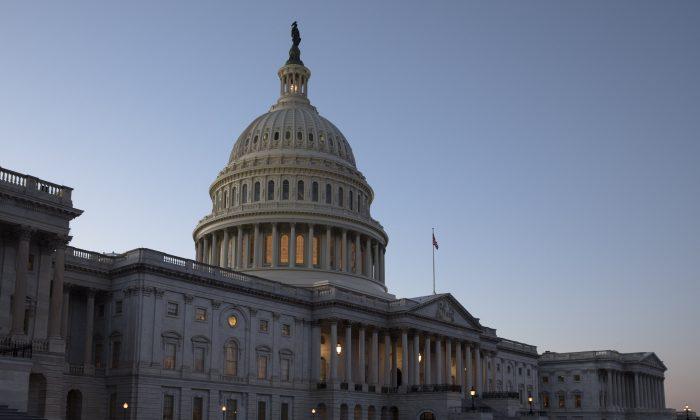A yearlong investigation by Department of Justice Inspector General Michael Horowitz detailed the FBI’s investigation into Hillary Clinton’s use of a private email server to send classified information while serving as secretary of state.
Tens of thousands of e-mails sent by then-Secretary of State Hillary Clinton hosted on a private server were permanently deleted by her lawyers, making it impossible for law enforcement to retrieve them.
However, since this controversial investigation, servers have played a key role in two other high-profile investigations.
In 2016, the Democratic National Committee (DNC) hired private security company CrowdStrike to investigate a potential hack of their server.
Crowdstrike, in a June 15, 2016, report, attributed it to hackers affiliated with the Russian government.
Key parts of the investigation, including the hacking styles Crowdstrike attributed to the Russian hacking groups, were discredited or disputed.
The FBI for months attempted to gain access to the DNC email servers to conduct its forensic investigation. However, to this day the DNC has not granted access to the FBI.
“We did not have access to the devices themselves,” former FBI Director James Comey said under oath before the Senate intelligence committee on June 8, 2017.
Instead, Comey said, “we got relevant forensic information from a private party.”
But despite that, the FBI never received access to the content of the server itself.
When asked by Sen. Richard Burr (R-N.C.) whether the content was “an important part of the forensics from a counter-intelligence standpoint,” Comey responded, “It is.”
Nevertheless, the alleged hack of the DNC became a core argument to support the theory that Russia tried to influence the 2016 elections through hacking and, by extension, that then-candidate Donald Trump had colluded with Russia to win the election.
House Democratic Caucus Server
Another high-stakes investigation in which a server plays a key role involves alleged hacks by five IT aides into congressional systems.The House Office of Inspector General had found by September 2016 that the IT aides, four of whom belonged to the Awan family, had made thousands of suspicious and in some cases unauthorized logins to congressional systems.
Besides the 44 offices of House Democrats the IT aides worked for, the aides made unauthorized logins to the systems of 15 other House Democrats.
A server belonging to the House Democratic Caucus was accessed thousands of times, and the IT workers had taken steps to conceal their suspected activity.
“Excessive logons are an indication that the server is being used for nefarious purposes and elevated the risk that individuals could be reading and/or removing information,” the House IG said in a presentation, which was not released publicly.
“Computers could be used as a launching point to access other systems for which access may be unauthorized.”
After the server had been identified by the House IG as key evidence in the investigation, it mysteriously disappeared.
Three government sources familiar with the matter told the Daily Caller News Foundation that the server had been physically stolen.





Friends Read Free